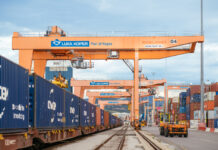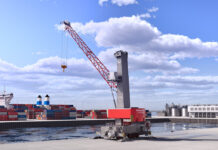
Pacific International Lines (PIL) announced on 14 February 2020 that it will be exiting the Trans-Pacific trades.
The company’s last Transpacific sailing will be in March.
PIL said: “Henceforth, PIL will focus on further strengthening its position in the North-South Trade such as Africa, Middle East / Red Sea, India Sub-Continent, Latin America, and Oceania.”
While the Singapore-based liner operator said that the decision resulted from continuous effort to optimise its network efficiency, PIL had been plagued by market talk of financial strain. Bunker suppliers who spoke to Container News mentioned that PIL’s payments have been tardy since 2018.
Founded in 1967 by Teo Woon Tiong who is also known as YC Chang, PIL made a complete departure from the Asia-Europe trade in early 2019, stopping slot purchases from COSCO.
Prior to today’s announcement, PIL had 90 regular liner services between Asia and Africa, the Americas (trans-Pacific and to South America), as well as intra-Asia. The latter segment is its core business, which operates around 150 vessels with a combined capacity of over 450,000TEU.
With daily operations overseen by Chang’s son, Teo Siong Seng, PIL retained its independence even as its peers formed alliances, a move that experts said, made it untenable for the company to compete in the Asia-Europe trade due to the economies of scale involved.
In 2013 and 2015, PIL ordered 24 newbuildings (twelve 3,900TEU units and twelve 11,800TEU units) to expand its presence in the Asia-West Africa and Asia-South America segments, respectively. Bonds were issued to help finance the newbuildings.
In May 2019, PIL’s container manufacturing subsidiary, Singamas Container Holdings, sold five of its Chinese container entities to a COSCO unit for US$565 million, explaining that the move enabled the company to concentrate on its logistics services and generated cash.
In the same month, reports surfaced that Singapore’s sovereign wealth fund, Temasek Holdings, had extended loans to PIL in 2018.
Amid weak freight rates, PIL’s loss widened to US$203.32 million in 2018, from US$141.18 million in 2017, becoming one of the most under-performing liner operators.
As at 31 December 2018, PIL had US$1.12 billion of long-term debt, which could still be covered by US$1.69 billion of equity.
Martina Li
Asia Correspondent




